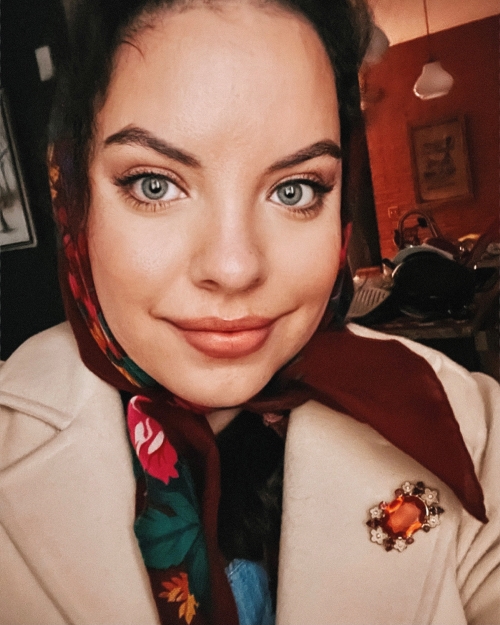Bailey’s Story
Storyteller: Bailey (she/her/hers), 26, Idaho
Story Transcript:
“In Shoshoni: Good afternoon my name is Bailey Dann. I am a Shoshone-Bannock tribal member from Fort Hall, Idaho. A long time ago, Our relatives lived here on our mother earth and took care of her.
It was really important for us as a people to take care of our land because she takes care of us. And I grew up learning that from my father and grandfathers, and from my grandmother and my other grandmothers, I have many in my community.
Growing up, I was raised by my grandparents, all of them. I would spend a lot of time with them. And so growing up, I learned these teachings that you take care of the land and you take care of its inhabitants. And so in my community-- I'm Shoshone Bannock. I'm a Shoshone Bannock enrolled tribal member in Fort Hall. And I was born in Fort Hall and I lived in the surrounding communities as well, and I was often the only Native student growing up and in a mostly white school. And so the way that they would frame math or science felt really different to me, because I grew up thinking about, you know, life processes of animals and the things that we eat and harvest and like, as a very cyclical, natural way, like, that's the way of being. And in school, you know, there were these numbers and equations, and, you know, the teacher would see me as a little girl, and would try to explain things as they would think a little girl would understand, and I did not.
I was always kind of strange. I would bring in tadpoles to school or, you know, all kinds of different things. And I was always the weird kid, you know, the weird kid that talked to the bees, or like, the weird kid that would bring roots to eat, you know, and salmon -- smoked salmon. I would talk about the lifecycle of the salmon for my science project and then I would bring smoked salmon that my dad caught for the other kids to taste, and I remember distinctly these girls -- they were kind of, I guess, like, what you would consider to be popular girls -- and they were like, “Ew, that's gross!” you know, and that always stuck with me. It still sticks with me, and I'm, you know, I'm 26. And that happened when I was about 10. And there's other instances in my life where that would happen to me, and it felt -- it made me feel small. It made me feel like, “Oh, I don't belong here,” you know, like, “Oh, that's not what science is.” And so I hid that part of myself for a really long time, you know, and I did my best. And I would take notes, and I would do the experiments, but I always thought of, you know, science and math, and all the other subjects at school, like, different from my own lived life. And that's something that maybe other community members feel. When you talk to elders, they'll say, “Oh, you know, you do it their way, but then understand that our way is different, and that's okay.” And so I just kind of had a very separated life view of, you know, what science meant in my life, and what it meant in, like, the white world versus what it meant, in, like, my people's world and our lived experiences.
And so I, you know, like that--that was a very striking experience, and as I grew, I began to realize, “Hey, this is special.” Like, I get all these stories, and I have all these teachings about science and math in the way that the natural world in, in where I live, like how it works. I understand, like, the life cycles of the different animals here, in a deeper way than maybe other folks have. And so, I began to see, like, what I used to think as, you know, like, maybe different or weird, I began to think of those experiences as, “That's special. And it's a gift, and I get to share that.”
And so that change -- like that framework change in my mind -- really inspired me to go to school and further my studies. And so I studied anthropology. And I'm currently studying linguistics in a Master's program because I realized that our language has very specific teachings that, you know, in science and in math, like, the way that we teach math, in our language is very different from the way that maybe math is taught in, how would you say, Eurocentric schooling systems. And so, through my journey of accepting myself and really understanding my purpose, I've been able to become a teacher and I work with K-12 students today. And it's -- I turned that experience into something positive and something that I could give back to my community. And I guess that's kind of my experience with STEM. It's very, it's, it's a little, it's unique, and I'm unique, and my people are unique, and the way that we live our lives are unique. And so that's, that's my story.”

It made me feel like, “Oh, I don't belong here,” you know, like, “Oh, that's not what science is.” And so I hid that part of myself for a really long time...

